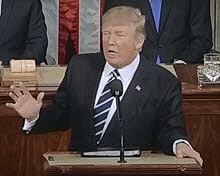With sweeping tax code changes enacted last month now in effect, both chambers of Congress are returning to a packed legislative to-do list and looming policy deadlines – including the expiration of the latest round of government funding on Jan. 19.
 |
With sweeping tax code changes enacted last month now in effect, both chambers of Congress are returning to a packed legislative to-do list and looming policy deadlines. |
As businesses and individuals adjust to the new tax law's various provisions, it is expected that the IRS will issue guidance on the largest change to the tax code in 31 years – including the 20 percent deduction for qualified business income; limitation on deductibility of business interest and losses; and deprecation and expensing of assets. The Roundtable will participate throughout 2018 in the regulatory and rulemaking process as technical questions and detailed tax guidance affecting commercial real estate are addressed by policymakers in Washington. (Roundtable Weekly, Dec. 22)
This week, congressional leaders and Trump Administration officials met to discuss the need for a government spending measure to avoid a shutdown when the current "Continuing Resolution" (CR) expires Jan. 19. Policymakers will seek to link other issues to a funding deal, such as overhauling the nation's immigration system; funding for a border wall; and the status of "Dreamers" – undocumented immigrants brought to the country as children.
Other pressing policy issues needs that may be wrapped into the spending debate include disaster relief, electronic surveillance laws and the Children's Health Insurance Program. Senate Minority Leader Chuck Schumer (D-NY) said on the Senate floor last month, "We can't leave any of those issues behind." (BNA, Jan. 3)
The budget also affects issues of importance to CRE such as the National Flood Insurance and EB-5 foreign investment programs.
Since only eight scheduled legislative days are available for Congress and the Administration to agree on a new spending measure before the Jan. 19 expiration, another short-term CR may be passed to keep the government open – or a shutdown will result.
This week also saw two new Democrats join the Senate, narrowing the Republican majority to 51-49. After Sens. Doug Jones (D-AL) and Tina Smith (D-MN) were sworn in yesterday, the ability of Senate Majority Leader Mitch McConnell (R-KY) to attract 60 votes to pass most legislation in the Senate will become a greater challenge.
In the House, Republican Speaker Paul Ryan (WI) has a 239-193 majority, yet pushback from certain Republican coalitions may necessitate Democratic votes to pass legislative initiatives.
Rep. Mark Meadows (R-NC), the chairman of the conservative House Freedom Caucus, recently told Bloomberg, "People are not going to come back singing the Sound of Music together. January is going to be contentious." (Bloomberg Government, Jan..2)
 |
The upcoming Roundtable State of the Industry Meetings will take place just days before President Trump's first State of the Nation address on Jan. 30, when he may emphasize his infrastructure initiative. |
Additionally, House Transportation and Infrastructure Committee Chairman Bill Shuster (R-PA) announced this week that he will not seek re-election, but emphasized he will be dedicated to passing an infrastructure bill this year. Shuster, who addressed the Roundtable last spring (see Roundtable Weekly, April 7, 2017) said upon announcing his retirement, "About a week or so ago I had a private meeting with the president at the White House. Now when I say private meeting, it was the president and I in the Oval Office with his senior advisers and some of my senior people, and we talked about the infrastructure bill. He's very excited. He seems to be ready to go, as we are, and so I think we're going to have a good working relationship as we move forward." (Washington Examiner, Jan. 2.)
President Trump met yesterday with governors and local government leaders about nationwide infrastructure improvements. Trump also will meet with Republican congressional leaders this weekend to discuss making infrastructure a top legislative priority this year. According to USA Today, the Administration will issue a new proposal later this month that would shift infrastructure project responsibilities to states and private investors by leveraging 200 billion dollars in federal funding to leverage 1 trillion in improvements. (USA Today, Jan. 5)
Details of the new tax overhaul law, along with the budget outlook, immigration, infrastructure and other policy topics will be discussed in detail during The Roundtable's State of the Industry and Policy Advisory Committee meetings on Jan. 24-25 in Washington. The meetings will take place just days before President Trump's first State of the Nation address on Jan. 30, when he may emphasize his infrastructure initiative.
New partnership audit rules will allow real estate investors to continue using tiered partnership structures without the risk of a new entity-level tax on the partnership.
 |
Proposed Treasury regulations published on Dec. 19 end the two-year uncertainty over whether new partnership audit rules would create a significant tax liability for investors in real estate partnerships. [ link to regulations ] |
Proposed Treasury regulations published on Dec. 19 end the two-year uncertainty over whether new partnership audit rules would create a significant tax liability for investors in real estate partnerships. At issue was the question of whether the IRS could require partnerships to pay taxes that are appropriately owed by its individual partners. The tax code has long recognized that partnerships are "pass-through" entities, and that partners in partnerships are only subject to tax on their share of the partnership's income. But under the new partnership audit reform law, some argued that the IRS could impose an entity-level tax burden in certain cases.
The Treasury regulations clarify that tiered partnerships will be permitted to use the "push-out" method, in which a partnership is relieved of the entity-level tax after an audit as long as it timely transmits revised K-1 tax statements to its partners, including other partnerships. [link to regulations] [IRS Guidance on Partnership Audit Regime Eases Some Concerns, Accounting Today (Dec. 26, 2017)]
Real Estate Roundtable Tax Policy Advisory Committee (TPAC) Member Donald Susswein testified specifically on this issue on behalf of The Roundtable at a September IRS hearing. At the hearing, Susswein stated that, "the most urgent thing is that prospective investors know that they're only going to be subject to tax on their own tax liability, correctly determined." He further testified that, "In order to ensure that this new law does not create a hindrance on the economy, it is very important to reassure investors that there is going to be a push-out method for tiered partnerships. And that can be done now, in 2017, even if other aspects of the regulations are reserved." [Roundtable Weekly, Sept. 22, 2017)
 |
Real Estate Roundtable Tax Policy Advisory Committee (TPAC) Member Donald Susswein, left, testified on behalf of The Roundtable about the new partnership audit rules at a Sept. 2017 IRS hearing. |
Congress enacted new rules for auditing partnerships and collecting partnership tax adjustments in the Bipartisan Budget Act of 2015 (BBA). An early version of the legislation would have shifted partnership tax liability to the entity level and imposed joint and several liability on individual partners and the partnership for the full amount owed.
The Roundtable successfully argued, at the time, that entity level taxation of partnerships would disrupt capital formation and discourage business activity, ultimately hurting job creation and economic growth. The Roundtable was heavily involved in developing the final BBA approach, which allows partnerships to "push out" tax adjustments through partnerships to the appropriate partner. The legislation was silent, however, on how the rules would apply to tiered partnerships.
Although enacted in late 2015, the new partnership audit rules will only take effect for audits of 2018 and later years. The audits themselves are unlikely to start until 2019 or 2020. Clarity on the application of the new rules for tiered partnerships is important, however, because of the impact on real estate investor decisions and partnership formations.